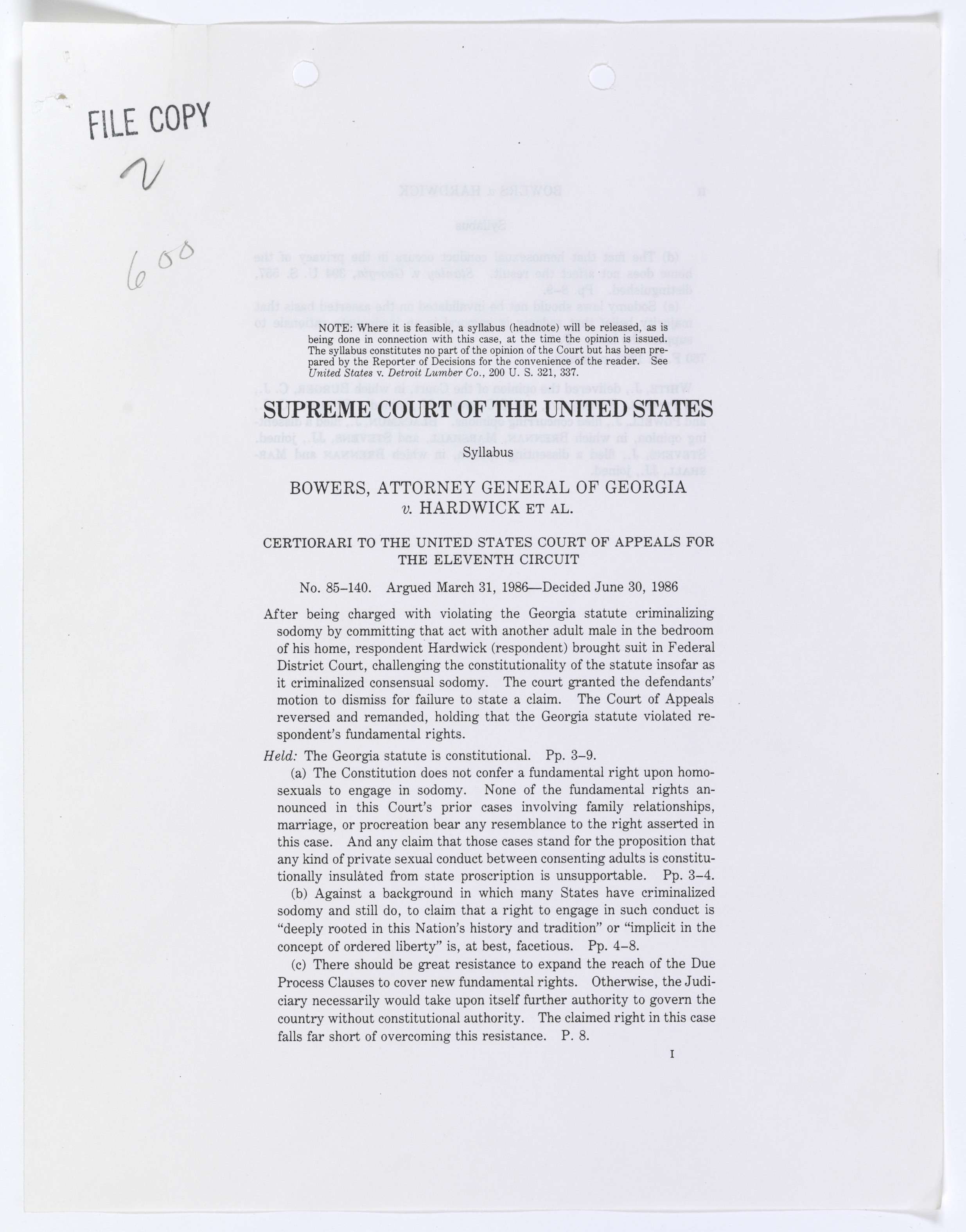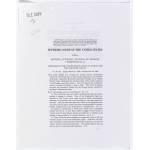Summary of the Opinion in Bowers v. Hardwick
6/30/1986

In Bowers v. Hardwick, the Supreme Court upheld anti-sodomy laws in a 5–4 decision. They found no fundamental protection of consensual sodomy and refused to invalidate a law approved by the Georgia electorate. The Court said that "there should be great resistance to expand the reach of the Due Process Clauses to cover new fundamental rights."
Justice Harry Blackmun wrote a dissent arguing that "depriving individuals of the right to choose for themselves how to conduct their intimate relationships" threatens our nation’s values.
Transcript
Supreme Court of the United StatesSyllabus
Bowers, Attorney General of Georgia v. Hardwick et al.
Certiorari to the United States Court of Appeals for the Eleventh Circuit
No. 85-140. Argued March 31, 1986 — Decided June 30, 1986
After being charged with violating the Georgia statute criminalizing sodomy by committing that act with another adult male in the bedroom of his home, respondent Hardwick (respondent) brought suit in Federal District Court, challenging the constitutionality of the statute insofar as it criminalized consensual sodomy. The court granted the defendants' motion to dismiss for failure to state a claim. The Court of Appeals reversed and remanded, holding that the Georgia statute violated respondent's fundamental rights.
Held: The Georgia statute is constitutional. Pp. 3-9.
(a) The Constitution does not confer a fundamental right upon homosexuals to engage in sodomy. None of the fundamental rights announced in this Court's prior cases involving family relationships, marriage, or procreation bear any resemblance to the right asserted in this case. And any claim that those cases stand for the proposition that any kind of private sexual conduct between consenting adults is constitutionally insulated from state proscription is unsupportable. Pp. 3-4.
(b) Against a background in which many States have criminalized sodomy and still do, to claim that a right to engage in such conduct is "deeply rooted in this Nation's history and tradition" or "implicit in the concept of ordered liberty" is, at best, facetious. Pp. 4-8.
(c) There should be great resistance to expand the reach of the Due Process Clauses to cover new fundamental rights. Otherwise, the Judiciary necessarily would take upon itself further authority to govern the country without constitutional authority. The claimed right in this case falls far short of overcoming this resistance. P. 8.
(d) The fact that homosexual conduct occurs in the privacy of the home does not affect the result. Stanley v. Georgia, 394 U. S. 557, distinguished. Pp. 8-9.
(e) Sodomy laws should not be invalidated on the asserted basis that majority belief that sodomy is immoral is an inadequate rationale to support the laws. P. 9.
760 F. 2d 1202, reversed.
WHITE, J., delivered the opinion of the Court, in which BURGER, C.J., and POWELL, REHNQUIST, and O'CONNOR, JJ., joined. BURGER, C.J., and POWELL, J., filed concurring opinions. BLACKMUN, J., filed a dissenting opinion, in which BRENNAN, MARSHALL, and STEVENS, JJ. joined. STEVENS, J., filed a dissenting opinion, in which BRENNAN and MARSHALL, JJ., joined.
Rights: Public Domain, Free of Known Copyright Restrictions. Learn more on our privacy and legal page.





